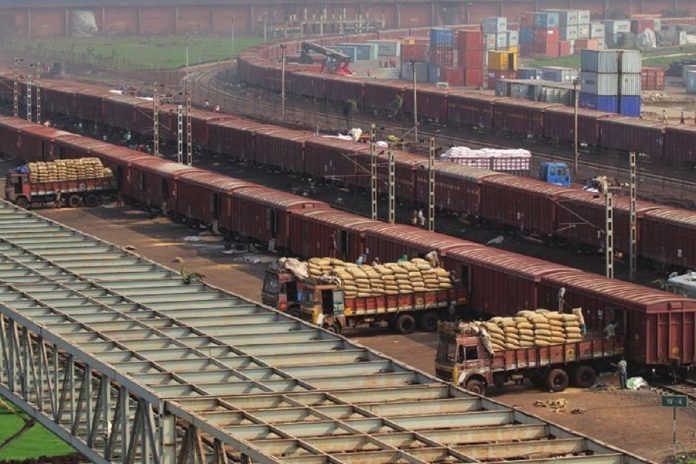Snapshot
Catering to domestic demand, Indian Railways, which was earlier deploying 15 rakes in a day to transport wheat for export, has now reduced it to nine per day.
Amid speculation of domestic availability of wheat with the government hitting a record low, the government has reduced the number of railway rakes per day earmarked for transport of the food grain for export.
Against the earlier norm of deploying 15 railway rakes, now this number has been reduced to nine per day, a change in strategy to cater to the domestic demand.
On the other hand, more rakes now will be used for movement of wheat procured by the Food Corporation of India (FCI). So, now 53 railway rakes will be deployed daily for this purpose compared to the earlier norm of 47. Consisting of 42 covered wagons, one rake carries about 2,800 tonnes of wheat.
This comes at a time when the volume of wheat export in the first three weeks of April has increased by around seven times — 9.6 lakh tonnes compared to 1.3 lakh tonnes — during the same period last year.
Sources said the change in strategy has been made considering two factors. First, there is a need to transport more wheat to trains to ensure enough domestic supply and second to slow down export of the food grain.
They added states which earlier could meet their requirement from the government procurement done there, now because of less procurement they need to get supply from other states. Two such classic examples are Rajasthan and Gujarat where wheat procurement has fallen drastically.
Earlier, India had drawn up a strategy to step up the country’s wheat exports to an all-time record of 21 million tonnes (MT) in the fiscal year 2022-23 as the Russia-Ukraine conflict has disrupted global trade.
However, owing to domestic compulsion, there was a change in strategy. Now the focus is to facilitate domestic wheat transportation.
Indian Railways, the national transporter, has a crucial role in facilitating the transportation of wheat within the country as well as to ports for export.


